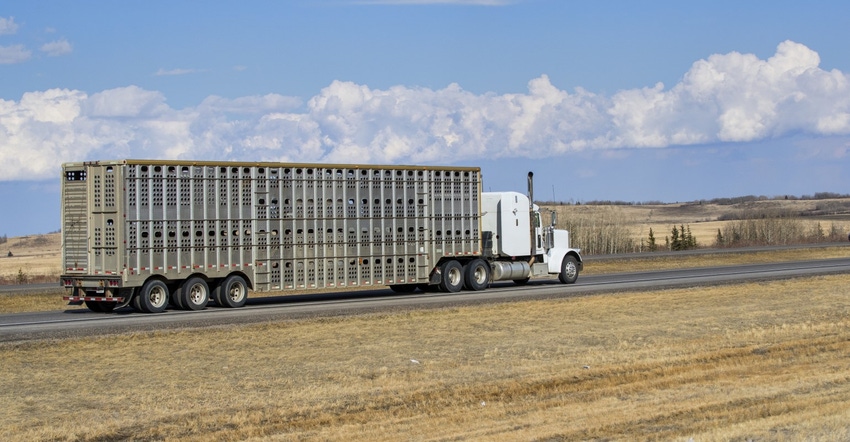Modernizing Agricultural Transportation Act creates working group at DOT to address hours of service and electronic logging mandates.

A bipartisan group of senators reintroduced the Modernizing Agricultural Transportation Act, legislation to reform the Hours of Service and Electronic Logging Device regulations at the U.S. Department of Transportation. Further, the bill would delay enforcement of the ELD rule until the required reforms are formally proposed by the transportation secretary.
The bill follows successful efforts through the appropriations process to secure delays of the ELD rule in fiscal years 2018-2021.
“We’ve worked to provide needed certainty and flexibility to our agricultural haulers under the HOS and ELD regulations so that they can get their products to market safely and efficiently,” says lead sponsor Sen. John Hoeven, R-N.D. “This legislation builds on our efforts, establishing a process to address unnecessary burdens under these regulations and advance reforms based on the input of agriculture producers, while also ensuring roadway safety is maintained.”
Sen. Michael Bennet, D-Colo., says he looks forward to working with his colleagues to give “farmers and ranchers a seat at the table as we push for more sensible rules around the transportation of agricultural goods.”
Specifically, the bill would establish a working group at DOT comprised of representatives from the transportation and agriculture industries, transportation safety representatives, and USDA.
The working group would be required to consider the impact of existing HOS and ELD rules on the commercial transport of livestock, insects and agricultural commodities and develop guidelines on reforming these rules. Within 120 days of receiving the working group’s report, the Transportation Secretary must propose regulatory changes to the HOS and ELD regulations, taking into account the group’s findings and recommendations.
“Livestock haulers have the difficult task of protecting the safety of our roads while maintaining the health and welfare of the animals they’re transporting,” says Sen. Roger Marshall, R-Kan. “The establishment of this working group will allow DOT to make commonsense reforms and remove burdensome regulations placed on hardworking transporters, ensuring the timely delivery of agricultural commodities.”
Additional co-sponsors include Sens. Steve Daines, R-Mont., Tina Smith, D-Minn., Mike Rounds, R-S.D., Mike Crapo, R-Idaho, James Risch, R-Idaho, Joni Ernst, R-Iowa, and Mike Braun, R-Ind.
The Modernizing Agricultural Transportation Act is supported by the National Pork Producers Council, National Cattlemen’s Beef Association, United States Cattlemen’s Association, Livestock Marketing Association, American Farm Bureau Federation, the American Honey Producers Association, The American Horse Council, the National Association of State Departments of Agriculture, American Sheep Industry Association, the National Turkey Federation and the National Aquaculture Association.
In North Dakota, as an example, the configuration and geography of the state make the hours of service rule difficult to ensure the well-being of livestock. “Being a primarily cow-calf sate, many of our cattle flow considerable distances for further feeding or processing. That leaves haulers with few options – options that can compromise animals’ well-being,” says Julie Ellingson, executive director of the North Dakota Stockmen’s Association.
Zippy Duvall, president of the American Farm Bureau Federation, says he appreciates how the legislation creates a framework for producers to work directly with the DOT to address the challenges surrounding the HOS and ELD mandates.
Susan Shultz, president of the American Sheep Industry Association, notes livestock haulers have long required greater flexibility in the existing hours of service regulations. “This legislation will ensure a solution is found to allow the continued transportation of livestock without unnecessary stops that inhibit airflow to the sheep being hauled, offloading and reloading that pose dangers to the sheep and those that hauls them, and protects the safety of the American public for our roadways.”
About the Author(s)
You May Also Like





